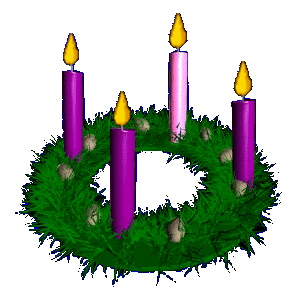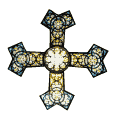 |
| Word at Christmas |
St Gertrude of Helfta.
The Heralds of God’s Loving-Kindness,
C. 23, 3. In this same shaken state I offer you as compensation,
most loving Father,
the passion of your most beloved Son in its entirety,
from the time that he lay wailing on hay in the manger,
and suffered from then on through the needs of infancy,
the weaknesses of childhood,
the trials of adolescence and the sufferings of early manhood,
right up to the moment when on the cross with bowed head, 4,
he yielded up his spirit with a great cry, 5.
To make up for all my acts of negligence I offer you, most loving Father,
that most holy life in its entirety, completely perfect in all its thoughts,
words and deeds from the moment
when your only-begotten Son was sent down
from the pinnacle of his throne and entered our country
through the Virgin's ear, 6,
until the moment that he brought into your Fatherly presence
the glory of his triumphant flesh.
most loving Father,
the passion of your most beloved Son in its entirety,
from the time that he lay wailing on hay in the manger,
and suffered from then on through the needs of infancy,
the weaknesses of childhood,
the trials of adolescence and the sufferings of early manhood,
right up to the moment when on the cross with bowed head, 4,
he yielded up his spirit with a great cry, 5.
To make up for all my acts of negligence I offer you, most loving Father,
that most holy life in its entirety, completely perfect in all its thoughts,
words and deeds from the moment
when your only-begotten Son was sent down
from the pinnacle of his throne and entered our country
through the Virgin's ear, 6,
until the moment that he brought into your Fatherly presence
the glory of his triumphant flesh.
__________
4. Jn 19:30. _
4. Jn 19:30. _
5. Mt 27:50.
6. It was a traditional belief in the Middle Ages that the Word became incarnate through the Virgin's ear.














